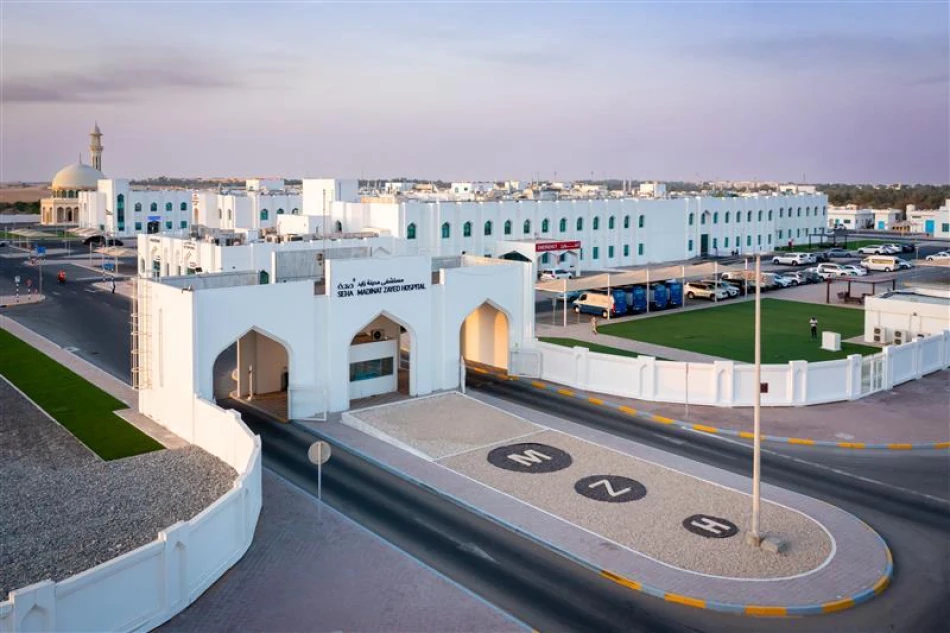
Early Speech Therapy Helps Young Girl Overcome Severe Swallowing Disorder
UAE Healthcare Breakthrough: 5-Month-Old Infant Overcomes Severe Swallowing Disorder in Record Time
A remarkable medical success story has emerged from Abu Dhabi, where a 5-month-old infant with severe swallowing difficulties has made a complete recovery in under three months. The case, handled by SEHA (part of PureHealth, the Middle East's largest healthcare group), demonstrates how early intervention and specialized speech therapy can transform outcomes for children with complex medical conditions, potentially reshaping pediatric rehabilitation approaches across the region.
The Medical Challenge
The infant, from Abu Dhabi's Al Dhafra region, presented with a complex array of conditions including congenital hypothyroidism and cardiac issues. Most critically, she suffered from severe dysphagia—a swallowing disorder that left her completely dependent on nasogastric tube (NGT) feeding, where nutrition is delivered directly to the stomach through a flexible tube inserted via the nose.
Such feeding dependencies in infants typically signal prolonged medical interventions and uncertain outcomes. Without proper treatment, swallowing disorders can cascade into malnutrition, respiratory complications, and significant developmental delays—conditions that often require months or years of intensive care.
Rapid Recovery Defies Expectations
Breakthrough After Six Sessions
The infant's response to specialized dysphagia therapy exceeded all medical projections. After just six targeted sessions, she began accepting small amounts of oral feeding (15-20ml), demonstrating improved nipple grip and sucking skills—critical milestones for infant development.
Complete Transition in 13 Sessions
By the 13th therapeutic session, the infant was consuming over half her meals orally. This progress prompted the multidisciplinary medical team, working alongside nutrition specialists, to approve a hybrid feeding approach combining oral and tube feeding at six months of age.
The team's confidence in her progress led to video fluoroscopy swallow testing the following day. The positive results were decisive: the nasogastric tube was removed entirely, and the infant transitioned to complete oral feeding, accepting both liquids and pureed foods.
Clinical Significance and Broader Implications
Speech therapist Neethu Mol Sabin Karunakaran Raghavan emphasized the case's broader significance: "This demonstrates the profound impact of early speech therapy intervention in rehabilitation processes, especially for children with complex health issues. Through consistent treatment and precise monitoring, we enabled the child to safely transition from tube feeding to oral feeding in less than three months."
The speed of recovery challenges conventional timelines for similar cases. Typically, infants with comparable conditions require significantly longer intervention periods, making this three-month transformation particularly noteworthy for pediatric medicine.
Healthcare System Evolution
Hajar Al Hosani, Executive Director of Clinical Support Services, highlighted the collaborative approach: "This case embodies the importance of multidisciplinary cooperation. To achieve successful rehabilitation outcomes, particularly in pediatrics, all medical team members must collaborate to meet each child's individual needs."
This model reflects a growing trend in Middle Eastern healthcare systems toward integrated, team-based care—an approach that major healthcare networks across the UAE and Saudi Arabia are increasingly adopting to improve patient outcomes while potentially reducing long-term care costs.
Regional Healthcare Leadership
The success positions PureHealth's capabilities alongside international pediatric centers known for specialized care. As the Middle East's largest healthcare group, such outcomes enhance the region's reputation for medical excellence and could influence healthcare investment and medical tourism strategies.
For healthcare systems across emerging markets, this case provides a compelling argument for investing in early intervention programs and multidisciplinary care models, potentially delivering both improved patient outcomes and more efficient resource utilization.
The case also underscores the UAE's broader healthcare transformation, where advanced medical capabilities are increasingly matching those found in established medical hubs like Singapore or major US pediatric centers, positioning the region as a growing center for specialized medical care.
Most Viewed News

 Sara Khaled
Sara Khaled






